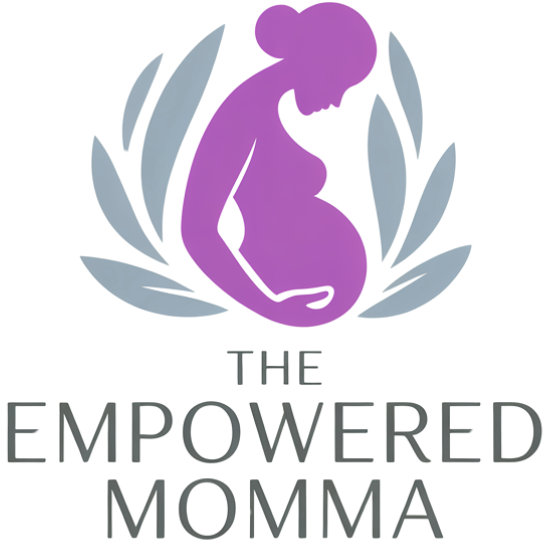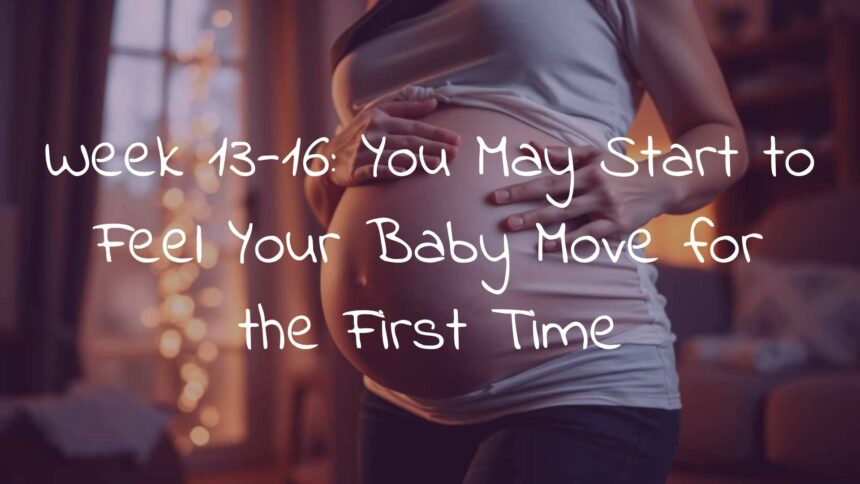Welcome to the second trimester! For many people expecting a baby, weeks 13 to 16 are special because this is often when you first notice your baby moving. Even though your baby has been moving inside your womb for a while, these weeks are when you might finally feel those tiny twists and turns yourself. This first sensation, called quickening, helps you feel more connected to your growing baby. It often feels like a gentle flutter, a tickle, or a pop, letting you know your baby is getting bigger and stronger.

This time is full of change for both you and your baby. As you go through these weeks, annoying early pregnancy problems like nausea often begin to ease, and you may start to feel more energetic and comfortable. At the same time, your baby is rapidly growing and getting ready for the movements you’re about to feel. Below, you’ll find what’s happening during these weeks in your pregnancy and what you can usually expect on this part of your journey.
What Changes Happen During Weeks 13-16 of Pregnancy?
From week 13 to week 16, a lot happens for you and your baby. This stretch is often known as the ‘easier’ part of pregnancy. Your body is slowly getting used to the changes, and your baby is starting to look and act more like a child than an embryo.
Week-by-Week Baby Growth and Movement
| Week | Baby’s Approximate Size | Main Developments |
|---|---|---|
| 13 | About the size of a peach (7.4 cm long) |
– Eyes move into position – Wrists and ankles form – Intestines are now in the abdomen – Starts swallowing amniotic fluid |
| 14 | About the size of a bell pepper (3.5 inches from head to rump) |
– Ears move to their correct spot – Neck gets longer – Facial features and fingerprints form – Urine formed and passed into the amniotic fluid |
| 15 | About the length of a large potato (6.25 inches from head to heel) |
– Fine hair (lanugo) covers skin – Eyebrows and scalp hair begin – Bones harden – May suck thumb on ultrasound – All organs present, will keep maturing |
| 16 | About the size of a carrot (7 inches from head to heel) |
– Heartbeat can be heard with a doppler – More coordinated limb movement – Slow eye movements begin – Fingers and toes fully formed – Genitals developed (sex may be visible on ultrasound) |

What Is Quickening and When Does It Start?
Quickening is the name for the first time you feel your baby move inside. It’s usually described as a gentle flutter, a soft tap, or bubbles in your belly. It might not happen at exactly the same time for everyone, but most people feel it somewhere between weeks 16 and 25. Some, especially those who have been pregnant before, might notice movement as early as 13-16 weeks. Not feeling anything by week 16 is normal-every pregnancy is different.
What Does the First Baby Movement Feel Like?
Many people say that early baby movements feel like:
- Tiny bubbles popping
- Butterflies fluttering in your belly
- Light tapping or twitching

At first, these movements are so soft that you might think it’s just gas or other stomach feelings. If you’re still or lying quietly, you might notice them more. As weeks go by, you’ll start to pick up on your baby’s own pattern of movement, usually starting low in your abdomen.
When Will You Notice Your Baby Move?
Feeling your baby move is an exciting milestone, but the timing is different for everyone. While some people pick up those first tiny movements around weeks 13-16, many others take longer. Both are completely normal.
Typical Timeline for First Movements
- Most people feel first movements (quickening) between weeks 16 and 25
- If it’s your first pregnancy, it might not happen until 18-20 weeks or later
- People who have been pregnant before may notice movement by 13-16 weeks
- Babies move well before you can feel them-ultrasounds often show lots of activity even when you don’t notice it
Things That Change When You Feel Baby Move
- Placenta Position: If your placenta is at the front of your uterus (anterior), it can cushion movements, making them harder to feel. If it’s at the back, you’ll likely notice movement sooner.
- Body Type: More body tissue between your womb and the outside can make it harder to feel subtle kicks at first.
- Number of Pregnancies: If you’ve been pregnant before, you may recognize your baby’s movements sooner since you know what to expect.
- Activity Level: Busy days can distract you from small flutters. Quiet, restful times make them easier to notice.
- Baby’s Own Level of Activity: Every baby is different-some move more than others, even early on.
What Do Early Baby Movements Feel Like?
Most descriptions of those first movements use words like “flutter,” “bubble,” or “twitch.” These are generally soft, light, and sometimes hard to notice at first. You’ll usually feel them:
- Low in your belly, near your pubic bone, especially before 20 weeks (before your uterus grows up above your bellybutton)
- As mild as a tickle, often only noticed when you’re quiet and paying attention
Comparing Early to Later Baby Movements
| Early Movements | Later Movements |
|---|---|
|
– Light, fluttery, barely there – Often mistaken for gas – Happen low in your belly – Only felt at rest |
– Stronger kicks and rolls – Distinct jabs, can even be seen from outside – Can feel all over your belly – More regular, happen at different times of day – Sometimes rhythmic movements (like hiccups) |
Why Is Feeling Baby Move Important?
Feeling your baby move is not just a nice part of pregnancy-it also shows your baby is healthy and active. These early movements are a sign that your baby is developing as expected, building muscle, and their nervous system is working. Later on, these kicks become a helpful way for you to keep track of your baby’s well-being between checkups. Recognizing your baby’s normal activity helps you notice if anything changes, which can be useful for you and your healthcare provider.
On top of the physical side, feeling your baby move brings you closer emotionally. Each kick is a reminder of the growing little one inside you.
Is It Okay If You Don’t Feel Movement Yet?
Yes, it’s absolutely fine if you haven’t felt any baby movement by week 16. Most people don’t feel anything until after this time-often between 18-25 weeks, and even later for some. Many different things can affect when you first feel movement, including placenta placement, body type, and if this is your first pregnancy. Remember, your baby is moving even if you can’t feel it yet. If you have an ultrasound between 18-22 weeks, you’ll probably see your baby moving on the screen even if you haven’t felt a thing. If you’re worried, talk to your doctor or midwife. They can check on your baby by listening for a heartbeat or doing a quick ultrasound.
When Should You Call Your Doctor or Midwife?
If You Don’t Feel Movement by Week 16
If you don’t feel movement by week 16 or even week 20, don’t panic. Most first-time parents need a bit longer to notice these early flutters. The movements are quite gentle, and it’s easy to miss them at first. However, if you are concerned or want some peace of mind, there is nothing wrong with calling your healthcare provider. They can check on your baby by listening for a heartbeat or doing a quick ultrasound.
When to Seek Medical Advice Later
- Once you start feeling movement often, notice your baby’s usual pattern
- If you notice a clear drop in your baby’s activity or go more than four hours without feeling any usual movement once your baby kicks regularly, call your doctor
- People with medical issues like diabetes or high blood pressure should be especially cautious about movement changes
A decrease in movement does not always mean there is a problem-sometimes babies sleep! But it’s best to let your provider check on things to be sure.
Frequently Asked Questions: Fetal Movement in Weeks 13-16
Can quickening come and go?
Yes, at first, you may notice movement one day and nothing for several more days. This is normal in the early second trimester. Babies have their own sleep cycles, and sometimes you’re just too busy to notice the subtle movements. As your baby grows, the movements will get more regular and easier to feel.
Is it normal for early kicks to be irregular?
Yes, the first movements may be scattered and unpredictable. Some days you might notice a few faint flutters; other days, none at all. This is because the movements are still very small and your baby is developing coordination. As weeks go by, these kicks will become stronger and more consistent.
Does baby movement hurt?
No, the first movements are gentle and won’t hurt. Later on, as your baby gets bigger and stronger, their kicks and twists might feel stronger, or even a little uncomfortable, but they shouldn’t cause real pain. If you ever feel sharp, ongoing pain-especially with movement-contact your healthcare provider right away.

